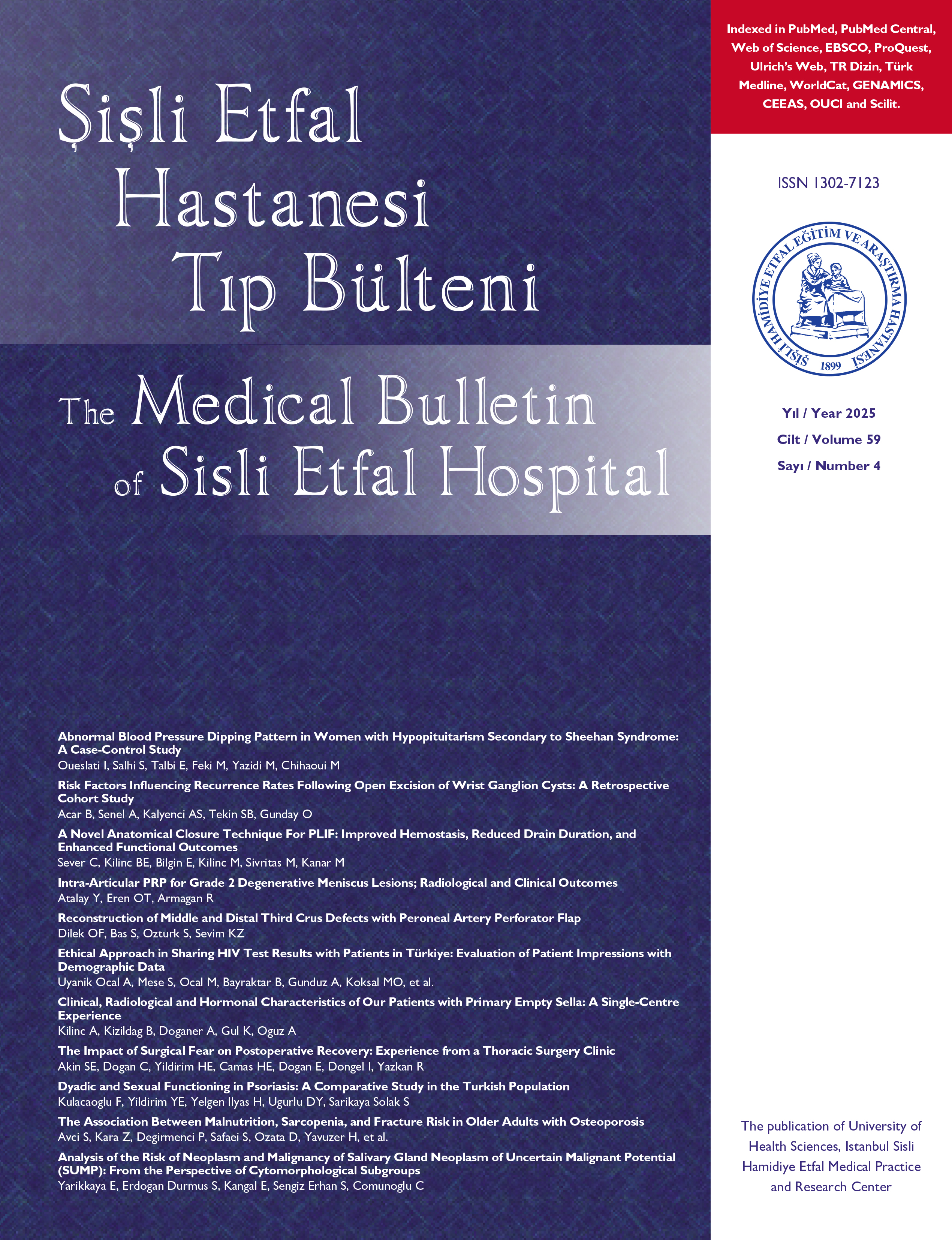
Investigation of the attitudes of working and non-working mothers regarding infant feeding
Aynur Aytekin1, Pelin Sarıkaya2, Sibel Küçükoğlu11Atatürk Üniveristesi, Sağlık Bilimleri Fakültesi, Çocuk Sağlığı ve Hastalıkları Hemşireliği Anabilim Dalı, Erzurum-Türkiye2Elazığ Merkez Balakgazi 3 Nolu Aile Sağlığı Merkezi, Elazığ-Türkiye
Objective: The study was conducted to investigate the attitudes of working and non-working mothers, who have babies aged 6-12 months, regarding infant feeding.
Method: The study was carried out as a descriptive study in between September 15, 2013 and January 25, 2014 in three regions of Family Health Center (FHC) that accommodate mostly working women in a city center located in east Turkey. The study population consisted of the mothers having babies aged 6-12 months residing in these regions at the time of the research. The whole study population was studied without selecting any sample group. The mothers who have not accepted to participate in the research were not included in the study. The study was conducted with 78 working mothers and 123 non-working mothers. Data were collected by the researcher through a questionnaire prepared based on the literature through face-to-face interview method. Approval of the ethics committee, official permissions and informed consent were obtained from the mothers to conduct the study. The data were analyzed in the SPSS 18.0 software by percentage distribution and chi-square test.
Results: In the study, statistically significant difference was found between working and non-working mothers on the first food given to babies, on giving temporary supplementary foods in the first three days, planned duration of breastfeeding, peak times of breastfeeding, breast cleaning before breastfeeding, performing breast rotation, and milking and storing breast milk factors (p<0.05). It was found in the study that the employment status of the mothers affects their reasons for starting to give supplementary foods (p<0.05). It was determined that the majority of working mothers return to work in 3 to 6 months, and think that postnatal and breastfeeding leaves are insufficient.
Conclusion: As a result of the study, it was found that the behaviors of working and non-working mothers on feeding infants aged 6-12 months were affected by separate factors. Initiatives and training appropriate for the needs of working and non-working mothers regarding infant feeding are recommended.
Keywords: Working mother, nonworking mother, breastfeeding, breast milk, infant feeding.
Çalışan ve çalışmayan annelerin bebek beslenmesine yönelik davranışlarının incelenmes
Aynur Aytekin1, Pelin Sarıkaya2, Sibel Küçükoğlu11Atatürk Üniveristesi, Sağlık Bilimleri Fakültesi, Çocuk Sağlığı ve Hastalıkları Hemşireliği Anabilim Dalı, Erzurum-Türkiye2Elazığ Merkez Balakgazi 3 Nolu Aile Sağlığı Merkezi, Elazığ-Türkiye
Amaç: Çalışma, 6-12 aylık bebek sahibi olan çalışan ve çalışmayan annelerin bebek beslenmesine yönelik davranışlarının incelenmesi amacıyla gerçekleştirildi.
Yöntem: Çalışma, Türkiyenin doğu bölgesindeki bir il merkezinde, daha çok çalışan kadınların ikamet ettiği üç Aile Sağlığı Merkezi (ASM) bölgesinde 15 Eylül 2013- 25 Ocak 2014 tarihleri arasında tanımlayıcı olarak yapıldı. Evreni, çalışmanın yapıldığı tarihler arasında belirtilen bölgelerde ikamet eden 6-12 aylık bebeği olan anneler oluşturdu. Örneklem grubu seçimine gidilmeden evrenin tamamı ile çalışıldı. Çalışmaya katılmayı kabul etmeyen anneler araştırmaya dahil edilmedi. Çalışma, 78 çalışan anne ve 123 çalışmayan anne ile gerçekleştirildi. Veriler araştırmacı tarafından literatürdoğrultusunda hazırlanan soru formu aracılığıyla yüzyüze görüşme yöntemi ile toplandı. Çalışmanın yapılabilmesi için etik kurul izni, resmi izinler ve annelerden aydınlatılmış onam alındı. Veriler, bilgisayar ortamında SPSS 18.0 paket programında; yüzdelik dağılım ve ki-kare ile değerlendirildi.
Bulgular: Çalışan ve çalışmayan anneler arasında bebeğe verilen ilk besin, ilk üç günde geçici ek besin verme durumu, planlanan emzirmeye devam etme süresi, emzirmenin yoğunlaştığı zamanlar, emzirme öncesi meme temizliği yapma, meme rotasyonu yapma ve anne sütünü sağıp saklama durumuna göre istatistiksel olarak anlamlı fark bulundu (p<0.05). Çalışmada, annelerin çalışma durumunun ek
gıdaya başlama nedenlerini etkilediği saptandı (p<0.05). Çalışan annelerin çoğunluğunun 3-6 ayda işe dönüş yaptığı, doğum sonrası izinleri ve süt izinlerini yetersiz bulduğu belirlendi.
Sonuç: Çalışma sonucunda çalışan ve çalışmayan annelerin 6-12 aylık bebek beslenmesi ile ilgili davranışlarını birbirinden farklı faktörlerden etkilendiği belirlendi. Bebek beslenmesiyle ilgili olarak çalışan ve çalışmayan annelerin ihtiyaçlarına uygun girişimler ve eğitimler yapılması önerilir.
Anahtar Kelimeler: Çalışan anne, çalışmayan anne, emzirme, anne sütü, beslenme.
Manuscript Language: Turkish



















